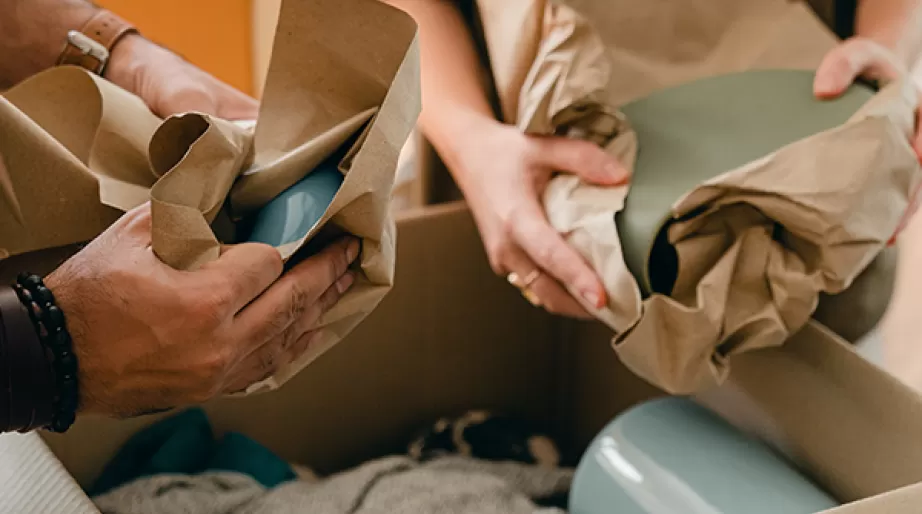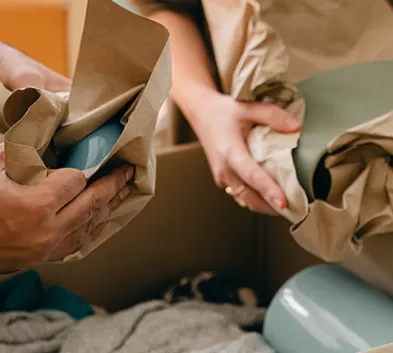Guide to Moving House in Singapore


Buying a new home and spending time to turn it into your dream home is the definitely the fun part. But, with the euphoria comes responsibility! Moving your belongings and possessions from your old place to the new one is not an easy task. You might get overwhelmed by the things you should think about when planning your relocation, and one of these is whether or not to hire movers.
Without a proper strategy, moving all your stuff can get messy. One of the biggest problems of people planning to move to a new home is where to start. We've some tips to help you make the process easier, especially for first-timers.
What are the things to do when moving house in Singapore?
Moving house is not something that you can do in a week and may require up to 2 months to get things settled. If you want to have a smooth-sailing process, you'll need to learn how to organise your relocation by creating a checklist. To help you get started, here's a guide that will show you what you need to take care of before, during, and after the home moving.
Before Moving
First on your list, you will need to inform your internet and telephone providers when moving house so they can update your billing address. You need to understand that there are relocation costs involved for the broadband and telephone lines. It is also important to secure your utilities before moving in and update your address with existing service providers, banks and insurers.
Next step to moving house is to make an inventory of the existing items in your home. Walk through each room and check which items you won't be needing anymore. This will save you time while packing your things, and it will lower the cost when hiring movers as some charge by the weight of the items they'll be moving. Besides clearing up unused items, here's what else you need to take care of:
Do Your Measurements
Use the floor plan of your new home to visualise the layout of each room. Also, take measurements of your existing or new furniture and appliances to know if they'll fit the area you want to put them. Some bulky furniture such as sofas and book shelves might not fit through the door entrance easily and so you would need to check if your mover can help you to dismantle and re-assemble them. House movers in Singapore may charge extra if you need them to assemble your furniture.
Sort and Declutter (Know what you want to move)
If you've stayed in your old home for a long time, there is no doubt that you accumulated plenty of stuff. Sorting and decluttering will help you decide which items to keep and discard, and this is where you can check out Marie Kondo for some inspiration!
If you are planning to change your furniture, do it now as it will save you time and even money from the moving services. For things you don't need anymore, consider doing these:
- Sell: What is one man’s trash is another man’s treasure. With platforms like Carousell and eBay, you can easily advertise your pre-loved items for a good price. This way you can earn some extra cash and lighten your load literally!
- Recycle or Upholster: For the DIY’ers, crafting your own furniture by salvaging materials off your existing home items may be right up your alley. Recycle that vintage sewing machine into a dining table or upholster an old sofa. A few tricks here and there, and your dusty furniture may well turn into sparkling new showpieces!
- Donate: Instead of throwing them away, why not donate your old furniture or items such as toys and clothes to the thrift stores? Some thrift shops such as Salvation Army, offer pickup service for bulky items so that saves you another headache while helping the less fortunate too.
Find and Contact Multiple Movers
If you decide to hire movers, get at least 3 quotations for comparison and google for their online reviews before settling on one. It's important to clarify how they charge their moving services as some prices may be hidden. Scheduling for the viewing of your home can take a week or two so do allocate some time in your planning!
Start Packing (Preparing The Necessary Packing Materials to use)
Moving companies will usually provide you with the storage boxes at a cost. Before packing your stuff, get ready some packing materials such as stationery and wrapping materials to help you with your tasks on hand:
- Masking tape
- Measuring tape
- Pens and markers
- Bubble wrap
- Penknife
Prepare A Moving Day Pack Full Of The Essentials
Not only should you prepare for the materials you will be using during the packing and unpacking process, but you should also prepare for the moving day. To set yourself up for the D-day, keep a bag of essential items which you may need if you are staying overnight while unpacking in your new home:
- Medicine
- Wallet and cash
- Toiletries
- A change of clothes
- Extra chargers
Settle the Old and Clean the New
Before unloading your stuff into your new home, you'd want to make sure that all rooms are clean. You can do the cleaning on your own or hire a professional cleaner to do it for you. Here are the remaining tasks you should do before the movers arrive:
- Clean and dust your furniture and appliances
- Defrost the freezer
- Secure any personal belongings such as your safe box
- Sweep and mop the floors
- Update the mover of the time and venue
- Prepare payment for fast transaction
D-Day for Moving
Now comes the day you've been waiting for. It's time to get moving! Make sure you get up early as there will be tons of things to do:
- Check all existing rooms to ensure nothing gets left behind by your movers
- Call up your telephone and internet company as well as other key service providers to ensure they've already updated your billing address
- Turn off the main power supply and check to ensure there’s no water line running or no lights left switched on in your old home.
After Moving In
Finally, after a long day of cleaning and moving, all you want to do is rest. But before that, unpack any boxes containing the essential items and perishables. As you go through the rest of the unpacked boxes, cross your items again to see if there are any missing stuff or things you might want to throw away or donate. This helps to lessen the mess that you will need to clean after moving into your new home.
Tips and tricks to know during your move
For an easier home moving experience, explore these hacks:
- Take photos of your furniture, appliances and valuable items. This helps you to trace it when an item goes missing after moving and serves as a proof with insurance claims.
- Make sure to put a fragile sticker on boxes you want to be handled with extra care
- Label the boxes according to which rooms they are designated for
- Some of your stuff may be flammable, mark them clearly or put a sticker on these boxes so the movers will handle them with extra care
- Number all the boxes and bags to make it easier to notice if something is missing
- Carry valuable items such as jewellery, gadgets and money with you
How much does it cost to move house in Singapore?
In Singapore, moving house can be costly. The cost for these moving services highly depends on the number of items, the distance the movers will be travelling, and how many trips they'll be making. Expect to pay at least $500 to move items of a 3-room HDB flat. You should reduce the number of trips these movers make to save you more. If you think your movers will have to take five to six trips, you'd best expect to pay $3,000.
If you're short in cash and you don't want to spend too much money when moving, we suggest that you borrow or rent a car to load up the items with. It won't matter how many trips you'll make, at least you won't have to worry about paying thousands of dollars. Just make sure to put gas if you don't want to get stuck in the middle of the highway!
If you need to transfer some big items, hiring a professional mover is still the best choice as they need to only make one trip.
What's the cost of a house mover?
The cost of a house mover typically ranges from $300 to $1500. Different moving companies charge differently. Some moving companies charge per hour ($100 to $150) while some charge per trip they make. That’s why before settling with a moving company, inquire how they charge their services. You might not be aware that whenever they go back and forth from your old house to the new one, your bill keeps increasing.
To better understand the cost of hiring a mover in Singapore, here are the three ranges to expect:
- Cheap and budget-friendly movers - These companies will charge between $300 to $500
- Mid-tier movers - These companies will ensure client satisfaction. They charge between $500 to $1,500
So, should you do the house moving process by yourself, or is it better to hire house movers? Well, that highly depends on how many items you'll be moving. A word of caution: some movers tend to quote a low price and not show their hidden charges. Some might surprise you with additional charges when the time comes to pay the bill. To avoid this, ask these movers for a detailed quote.
You might also need to inform your insurance company about your plans for moving, as some factors might affect your home insurance. This way you'll know if there is a need to purchase new home insurance or you can transfer your existing one to your new home. If you're moving from an HDB flat to a private residence, you'll need to buy new home insurance as the two properties require different coverages.


